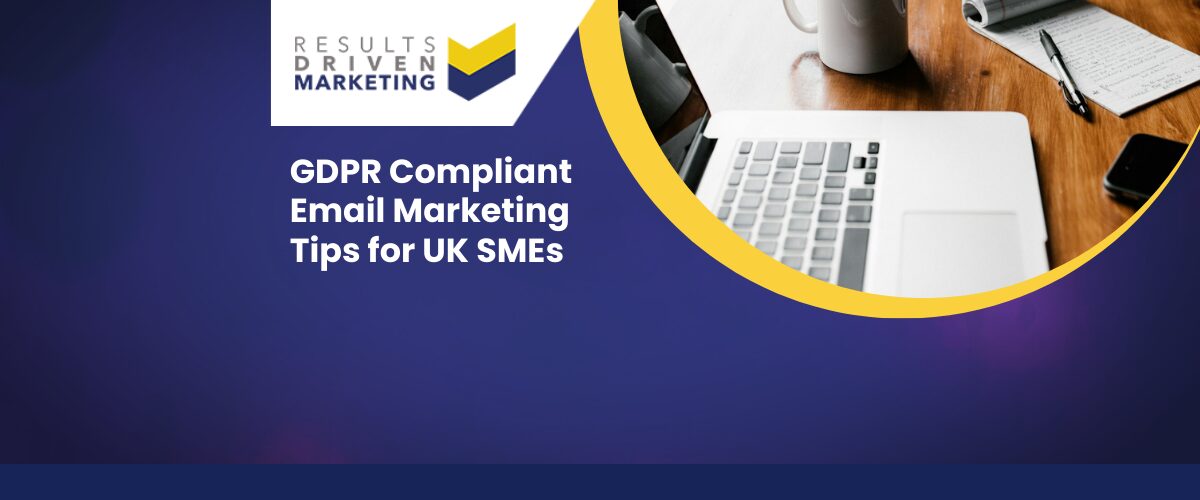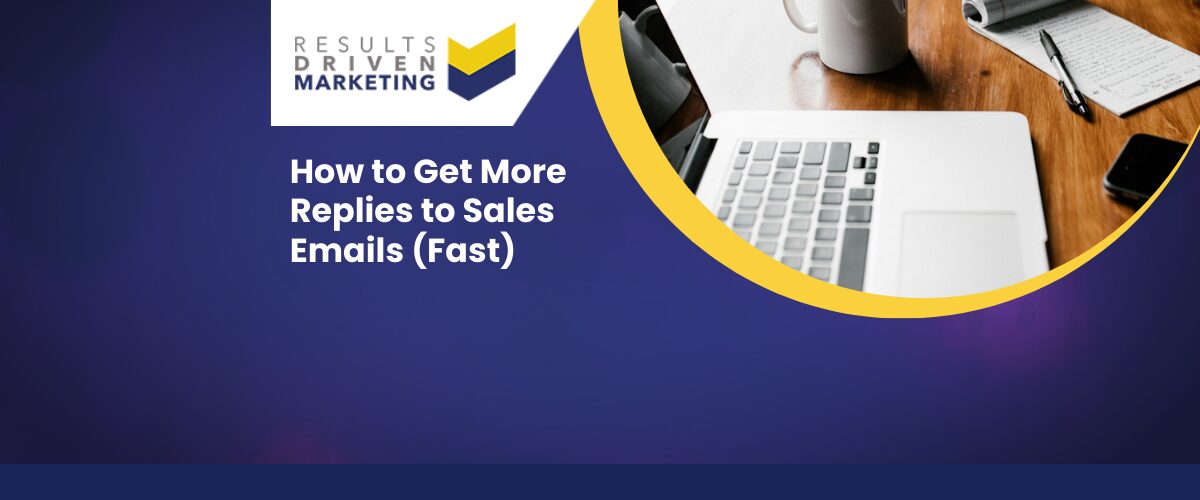
GDPR Compliant Email Marketing Tips for UK SMEs
GDPR compliant email marketing tips are more than just a nice-to-have — they’re essential if you’re running outreach campaigns using purchased B2B data. And let’s be honest: for many UK SMEs, navigating GDPR feels like walking a legal tightrope while trying to hit sales targets.
We get it. You’re trying to grow your business, fill the pipeline, and make sure your emails reach the right people — without crossing the compliance line. But the confusion around what’s allowed, who you can email, and what you need to include often stops campaigns before they start.
This post is here to cut through that noise. We’ll break down the key rules, share practical advice that keeps you on the right side of the law, and give you tips you can apply straight away — whether you’re writing your first cold email or fine-tuning a high-volume campaign.
Let’s make GDPR work for your email marketing, not against it.
Table of contents:
Why GDPR Matters for Email Marketing in the UK
Understanding GDPR Basics in Plain English
The General Data Protection Regulation (GDPR) is all about protecting people’s personal data — and yes, that includes business contacts. While B2B email marketing is still allowed under GDPR, it comes with specific rules you need to follow.
At its core, GDPR says you must have a legal basis for contacting someone and be transparent about how you’re using their information. For most SME marketers using cold email, this means understanding and correctly applying the concept of legitimate interest.
Risks of Non-Compliance
Get it wrong, and the consequences aren’t just theoretical:
-
Fines from the ICO (up to £17.5m or 4% of turnover)
-
Complaints from prospects
-
Damage to your reputation and domain deliverability
Even well-meaning campaigns can land you in hot water if they skip basic compliance steps.
B2B vs B2C: What’s Different Under GDPR?
The good news? B2B email marketing is treated differently under GDPR. You can contact business professionals without prior consent — if:
-
The message is relevant to their role
-
You have a legitimate interest
-
You give them a clear, easy way to opt out
That means GDPR doesn’t ban cold email — it just asks you to be more targeted, transparent, and respectful.
Is Cold Email Still Legal Under GDPR?
Yes, But There Are Rules
The short answer: yes, cold emailing is still legal under GDPR — if you follow the rules. The key principle that makes this possible is something called legitimate interest. This means you’re allowed to contact someone if there’s a genuine reason to believe the message is relevant to their role and business.
So, if you’re a B2B company offering services to business professionals (e.g., marketing data to sales directors), cold outreach is permitted — as long as it’s done respectfully and compliantly.
Who You Can Contact and How
To stay within the rules:
-
Focus on work contacts (not personal email addresses)
-
Make sure the offer is relevant to the recipient’s role
-
Keep messaging clear, non-deceptive, and easy to understand
-
Always provide an opt-out link or instructions
Key Things to Avoid
To keep your campaigns GDPR-friendly:
-
Don’t send blanket emails to random lists
-
Avoid vague or misleading subject lines
-
Never hide your identity
-
Don’t contact someone repeatedly if they haven’t engaged
Remember: the goal is to be respectful, relevant, and responsible — not sneaky. That approach won’t just keep you compliant; it’ll also boost your response rates.
Practical GDPR Compliant Email Marketing Tips
Getting compliant doesn’t mean killing your campaign. These tips will help you stay on the right side of the law and get better results from your B2B email marketing.
1. Be Clear on Your Legal Basis
Most SME email campaigns rely on legitimate interest. That means you’re contacting someone because your product or service is relevant to their job role, and you’re doing so in a way they’d reasonably expect.
Document your reasoning — who you’re contacting, why they’re relevant, and how you’ll let them opt out. This keeps you covered if questions arise.
2. Segment and Target Accurately
Relevance isn’t just good for GDPR — it’s good for ROI. A well-targeted message to a specific job title in a relevant sector is far less likely to annoy and far more likely to convert.
Poor targeting is what often triggers complaints — and that’s what the ICO looks at.
3. Always Include a Clear Opt-Out
This isn’t optional. Every email you send must include a clear way for the recipient to unsubscribe or opt out — ideally with a single click. Make it easy, obvious, and actioned immediately.
4. Be Transparent About Who You Are
Don’t make people guess who’s emailing them. Include:
-
Your name
-
Your company name
-
Contact information
-
Registered address (if required)
This builds trust — and keeps you compliant.
5. Keep Records of What You’re Doing
GDPR requires accountability. Keep a simple log of:
-
When you sourced the data
-
Why you believe your message is relevant
-
When emails were sent
-
Opt-outs or complaints received
You don’t need to be a lawyer — just be organised.
How to Stay Compliant When Using Purchased Data
Using purchased data doesn’t automatically put you on the wrong side of GDPR — but it does raise the stakes. Here’s how to make sure you’re using that data the right way.
Buy from Reputable UK Providers
The quality and compliance of your data source matter. Always choose a UK-based supplier that:
-
Sources data from legal, GDPR-aligned sources
-
Can explain how contacts are selected
-
Regularly updates and cleans their lists
At Results Driven Marketing, we supply targeted B2B data tailored to your campaign type — ensuring you stay within UK legal boundaries.
Make Sure Targeting Aligns with Your Offer
If you’re selling HR software, don’t email finance directors. If your product only suits companies with 50+ staff, don’t target sole traders. Irrelevant messaging not only kills your ROI — it increases the risk of complaints.
Send from a Human, Not a Bot
Your outreach should feel like a genuine message — not spam. That means:
-
A real sender name
-
A clear reason for contact
-
A respectful tone
-
A working reply address
The more human and transparent your approach, the more likely it is to be received positively and remain compliant.
Common Mistakes That Can Get You Into Trouble
Even well-intentioned businesses slip up when it comes to GDPR. Here are the mistakes we see most often — and how to avoid them.
1. Buying Outdated or Irrelevant Data
If your data is old, messy, or poorly targeted, you’re asking for trouble. Poor targeting leads to poor engagement — and more complaints, which raise red flags with the ICO.
Always ask how recently the data was updated, how it was sourced, and how it’s segmented. Better yet? Work with a supplier who tailors it to your needs.
2. Forgetting Unsubscribe Links
Leaving out a clear opt-out is one of the fastest ways to breach GDPR — and it’s a rookie mistake that’s easy to fix. Every email needs a visible, working unsubscribe option.
3. Using Vague Subject Lines or Hiding Your Identity
If someone opens your email and can’t immediately see who it’s from or why they’re being contacted, they’re more likely to report it. Use subject lines that are relevant and truthful — not clickbait.
4. Assuming B2B Means “Anything Goes”
This one’s critical: just because you’re emailing a business contact doesn’t mean GDPR doesn’t apply. The rules may be slightly more flexible for B2B, but they still exist — and ignoring them can cost you.
Compliance isn’t about overthinking — it’s about applying a few smart, consistent habits. And we can help you do exactly that.
Why Choose Results Driven Marketing
At Results Driven Marketing, we know that compliance and campaign success go hand in hand. That’s why we don’t just supply data — we help you use it safely, smartly, and successfully.
We’ve supported hundreds of UK SMEs with GDPR-friendly B2B data for email, telemarketing, and direct mail — helping them reach the right decision-makers without putting their business at risk.
Here’s What You Can Expect with Us:
-
Accurate, Targeted B2B Lists
Sourced from trusted UK providers, updated monthly, and segmented by job role, sector, location, and more. -
Built for GDPR Compliance
We help you align data selection with your campaign purpose — so your messaging is relevant, respectful, and legally sound. -
Tailored to Your Marketing Style
Whether it’s cold email, direct mail or multi-channel outreach, we provide data that fits your strategy — not just a one-size-fits-all dump. -
Advice You Can Count On
Need help shaping your outreach? We’ll walk you through the basics, clarify any GDPR concerns, and make sure your next step is the right one.
We care about your results and your reputation. If you’re ready to run compliant campaigns with confidence, contact us — we’re here to help.
Summary: Email Marketing That Delivers AND Complies
GDPR compliant email marketing tips aren’t just about ticking boxes — they’re about protecting your brand and improving your results.
As a UK SME, you don’t need to choose between compliance and performance. With the right data, clear messaging, and a smart, human-first approach, you can legally reach decision-makers, build trust, and generate leads — all while staying firmly on the right side of GDPR.
The key?
-
Know your legal basis
-
Keep targeting relevant
-
Be transparent, respectful, and easy to opt out from
Need help running a campaign that’s both compliant and effective? Explore our email lists or contact us for advice, counts, and support — fast.
Results Driven Marketing
Helping UK SMEs go from bad data to more customers and profits
📍 Newcastle, UK
📞 0191 406 6399
🌐 rdmarketing.co.uk




